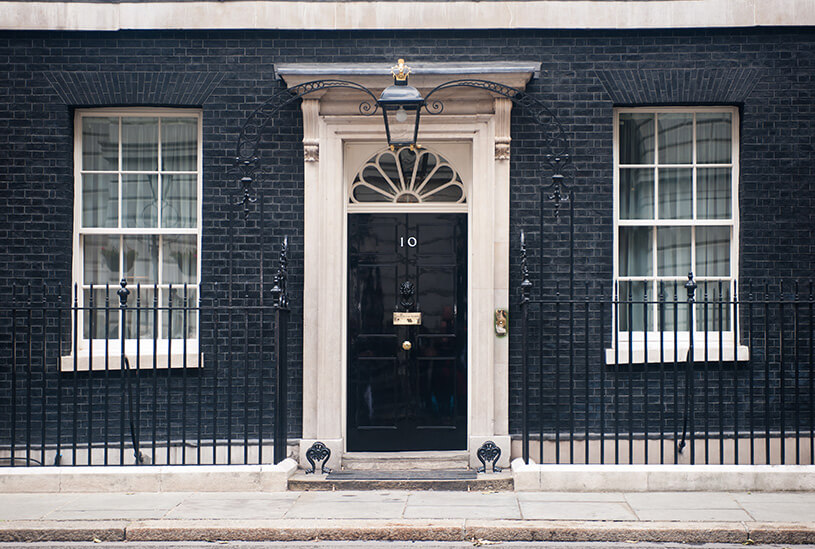Following a turbulent few weeks for the UK government, Rishi Sunak was named prime minister on 24 October.
What does his appointment mean for buy-to-let landlords when it comes to key issues such as rental reforms, tax changes, and mortgages?
What are Rishi Sunak’s housing policies?
Despite losing out to Liz Truss just a few months ago, Rishi Sunak secured enough support from Conservative MPs to be named prime minister uncontested.
The MP for Richmond in Yorkshire’s main objective is to lead the UK through a ‘profound economic crisis’ and reverse the turbulence caused by Liz Truss and Kwasi Kwarteng’s mini-Budget.
Sunak outlined some of his thoughts on housing during the summer leadership contest, although it wasn’t a major part of his campaign.
Here’s what we know so far:
- the manifesto pledge to build 300,000 new homes a year could be scrapped as Sunak disagrees with ‘arbitrary top-down numbers’
- instead, he could drive housebuilding through landbanking reforms and removing barriers for small builders
- the new prime minister has previously voted in favour of the Renters’ Reform Bill, so it’s likely rental reforms will go ahead
- he’s consistently voted to reduce central government funding for local councils, which could mean less licensing and red tape in the future
Meanwhile, Sunak is expected to go ahead with the planned corporation tax rise from 19 per cent to 25 per cent next April.
During his leadership campaign, he said he wouldn’t cut taxes until inflation was brought under control. It’s unclear whether he’ll revisit plans to cut income tax before the next general election.
Michael Gove returns as Housing Minister
As part of Rishi Sunak’s reshuffle, Michael Gove was named Secretary of State for Levelling Up, Housing and Communities.
He previously held this role between September 2021 and July 2022, before being sacked by Boris Johnson.
Gove’s return to the cabinet has been welcomed by letting agent trade body Propertymark, as well as housing campaign groups Generation Rent and Shelter.
The MP for Surrey Heath has been praised for his previous work on the cladding scandal and it’s thought that bringing him back into the cabinet will bring continuity and progress to rental and leasehold reform.
What does this mean for rental reforms?
The return of Michael Gove suggests that the government’s plans to reform the rental market could be back on the agenda.
It was unclear under the Liz Truss administration if the proposals published by Gove in June’s Fairer Private Rented Sector White Paper would be introduced, although she did commit to scrapping Section 21 evictions.
Ben Beadle, Chief Executive of the National Residential Landlords Association, said progressing rental reforms should be top of Gove’s ‘in tray’.
He said: “Our data shows that most [landlords] can envisage operating without Section 21 provided other proposals, such as on court reform and reformed grounds for possession, have their confidence.
“We will work constructively with the new Secretary of State to ensure the final reform package has the confidence of responsible landlords and tenants alike.
“This includes the need for action to tackle anti-social tenants, scrapping plans that would decimate the student housing market, and reforming the courts to ensure legitimate possession cases are dealt with more swiftly.”
Landlords prepare for tax changes
The corporation tax rate is set to rise by six per cent next April, so limited company landlords may face a higher tax bill.
Despite this, the number of landlords transferring ownership of their properties continues to rise.
Estate agency Hamptons’ analysis of Companies House data shows:
- the total number of buy-to-let property companies stands at over 300,000 and has more than doubled since 2017
- around 40 per cent of all new buy-to-let purchases are now made via a company structure, up from 10 per cent in 2016
- 50,445 new buy-to-let companies were set up over the 12 months to September 2022, the second highest figure in any 12-month period
- 8,902 companies were dissolved, mainly due to landlords selling properties. This marks a 25 per cent rise on the previous 12 months
The estate agency says that recent buy-to-let mortgage rates have encouraged more landlords to incorporate.
This is because limited company landlords benefit from paying corporation tax and avoiding Section 24 tax changes that reduce their profits.
With the rate of corporation tax increasing next year, the number of buy-to-let companies could start to dip in 2023 as landlords weigh up their options.
Mortgage market calms ahead of Autumn Statement
One of the biggest consequences of September’s mini-Budget was a dip in financial market confidence.
This led to fluctuations in the value of the pound, plus significant rises in the cost of fixed mortgage products.
A number of lenders withdrew products from the market, before reinstating them at much higher rates.
According to Moneyfacts, the average two-year fixed mortgage rate rose to 6.46 per cent and the average five-year fixed rate increased to 6.28 percent, both 14-year highs.
It’s hoped that the appointment of Rishi Sunak as prime minister will stabilise the economy.
A number of mortgage lenders, including Coventry Building Society, Accord Mortgages, and Santander, have already reduced fixed rates by up to 0.5 per cent.
All eyes will now be on Sunak and chancellor Jeremy Hunt as they prepare to deliver an Autumn Statement on 17 November.
The fiscal statement will include forecasts from the Office for Budget Responsibility and will outline the government’s plans for tax rises and spending cuts.
Will Rishi Sunak benefit the buy-to-let market? Let us know in the comments below.
Get set with tailored landlord cover
Over 200,000 UK landlord policies, a 9/10 customer rating and claims handled by an award-winning team. Looking to switch or start a new policy? Run a quick landlord insurance quote today.
pcruciatti/stock.adobe.com
